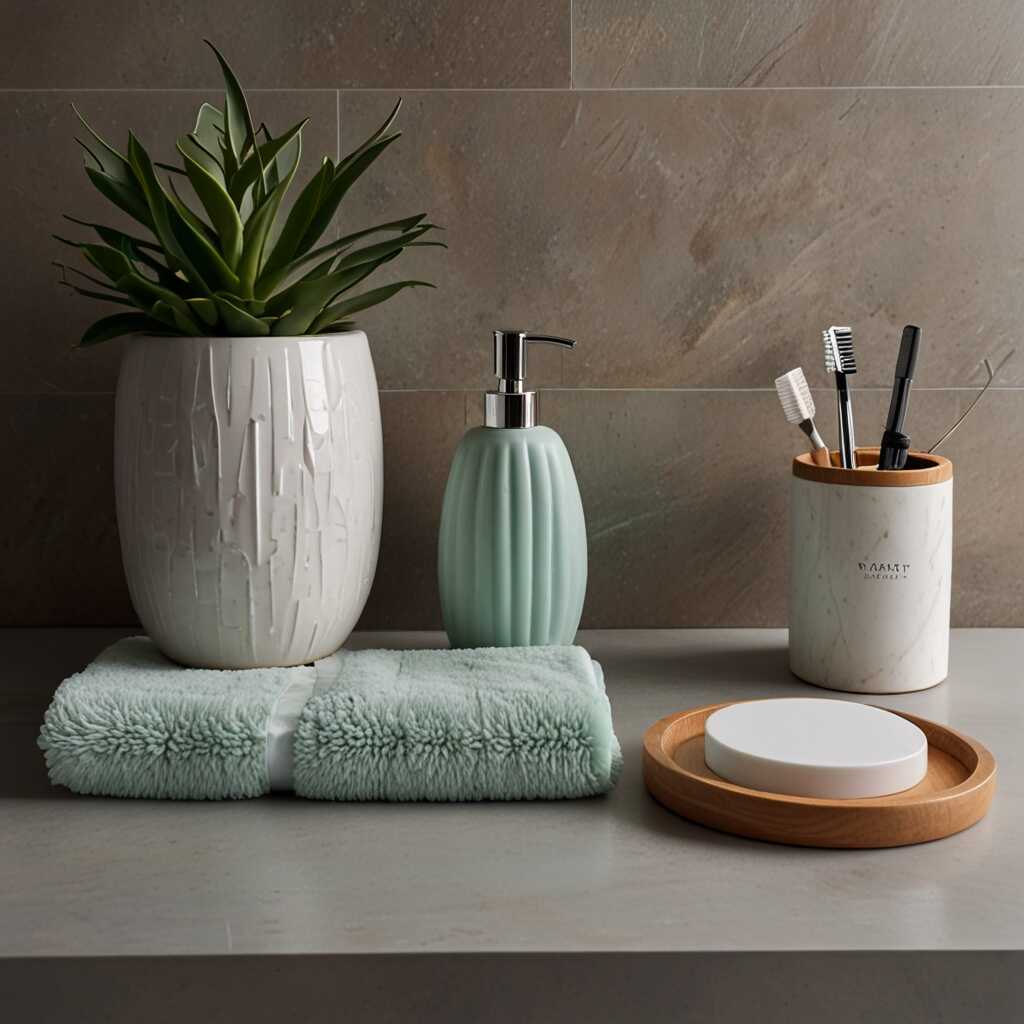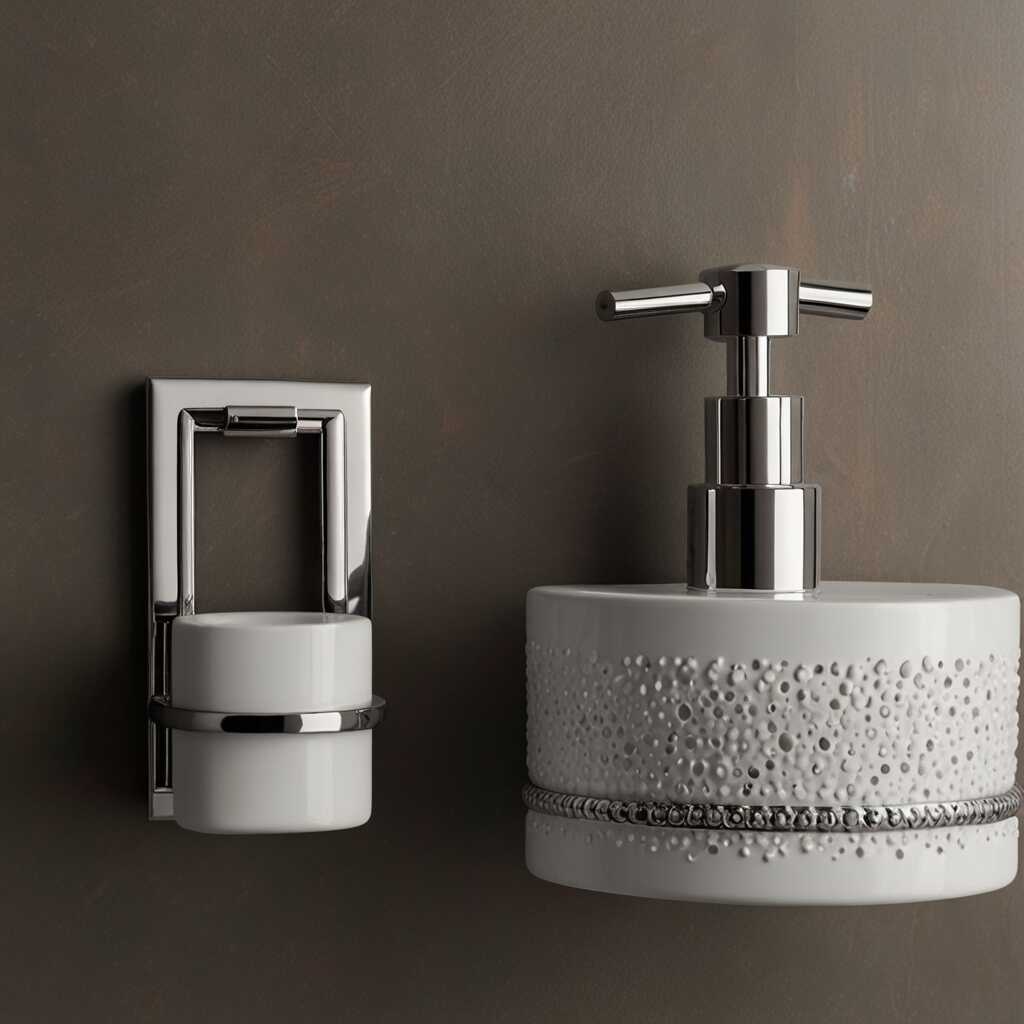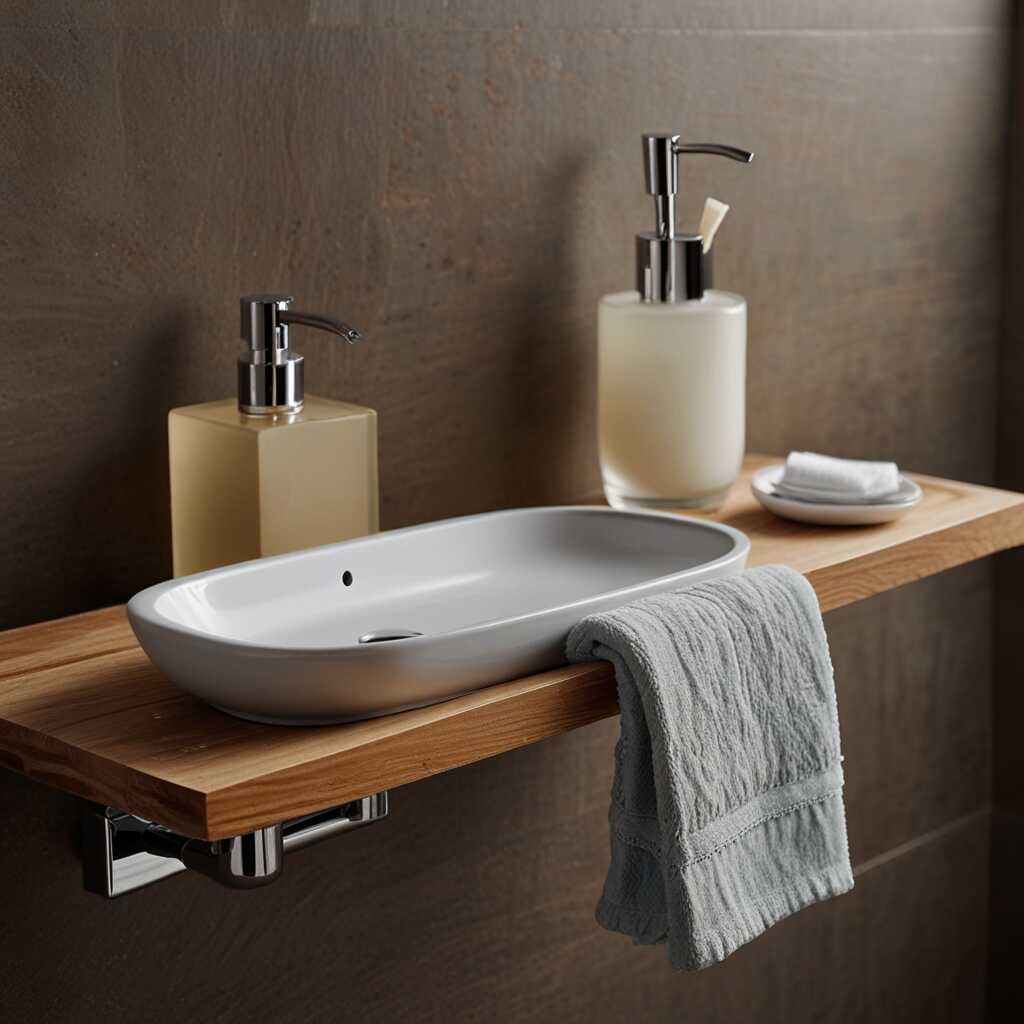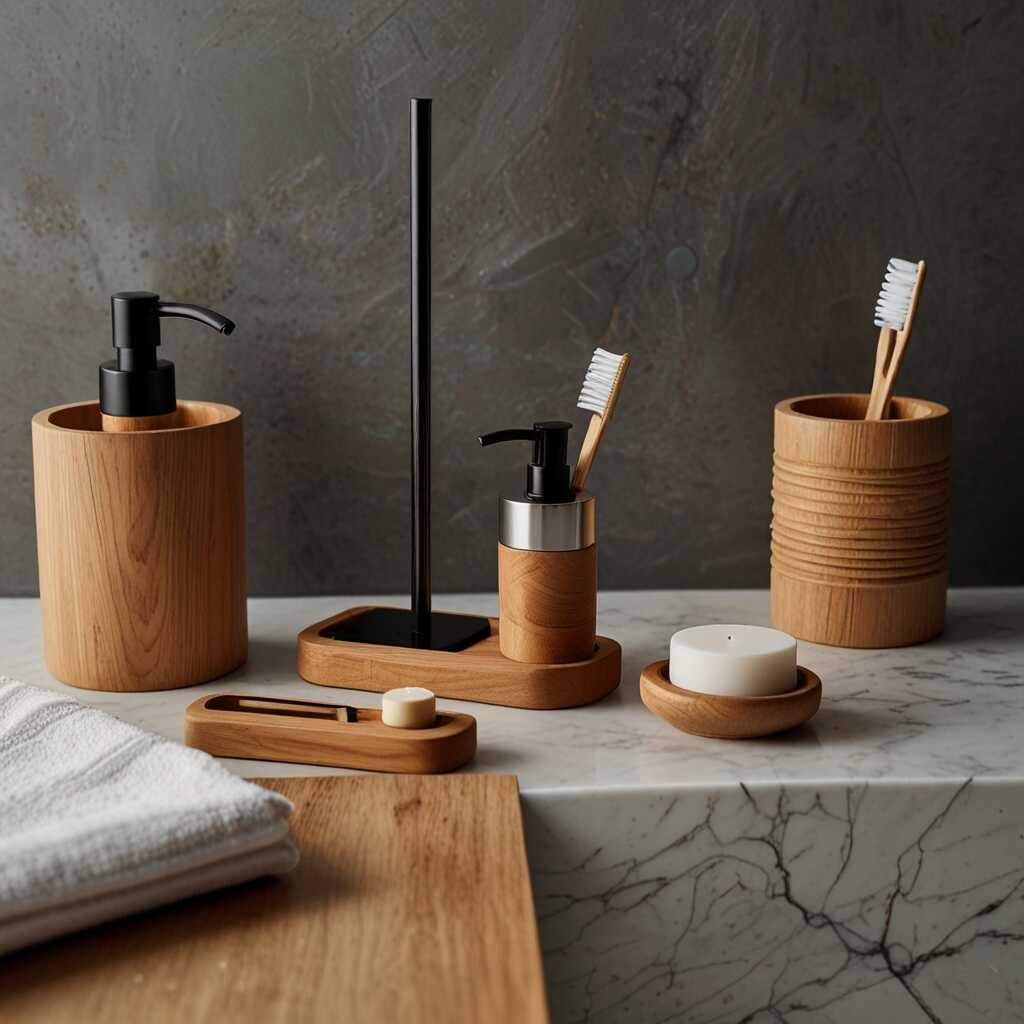Yes, beach bathroom accessories can be harmful to marine life in surprising ways. These accessories often contain materials and chemicals that contribute significantly to ocean pollution and endanger marine animals.
Table of Contents
- Impact of Cleaning Products in Beach Bathrooms
- Harmful Ingredients in Cleaning Products
- Are Beach Bathroom Accessories Harmful to Marine Life?
- Beach Glass and Marine Life Safety
- Environmental Effects of Decorative Beach Accessory Sets
- Sustainable Practices for Manufacturers
- How Do Beach Huts Use Eco-Friendly Bathroom Designs?
- How Effective Are Eco-friendly Designs in Beach Huts?
- How Beach Theme Bathroom Accessories Affect Marine Life
- Which Beach-Themed Accessories Are Most Harmful?
- Do Beach Bathroom Accessories from Popular Brands Harm Marine Life?
- How Many Brands Offer Eco-Friendly Beach Accessories?
Impact of Cleaning Products in Beach Bathrooms
Cleaning products used in beach bathrooms can wreak havoc on marine ecosystems. Harmful chemicals in these products, such as bleach and ammonia, make their way into nearby waters, causing toxic buildup. Harmful chemicals like these can kill more than 50% of marine microorganisms within 24 hours. Significant impacts on marine life are observed when contaminants accumulate and disrupt reproductive cycles. Eco-friendly alternatives, such as vinegar-based cleaners and biodegradable soaps, are available and can easily reduce the environmental footprint of beach bathrooms. Bathroom management can reduce impact by switching to these eco-friendly options and setting up regulations that prevent the use of particularly harmful chemicals.
Harmful Ingredients in Cleaning Products
Dangerous chemicals like bleach and ammonia found in beach bathroom cleaning products pose severe risks. Marine life impact from such harmful ingredients includes disruption of reproductive cycles and mortality rates higher than 50%. Human health is also at risk, especially for children and elderly individuals. Regulations mandating safer cleaning products in beach areas have been established in places like California since 2015. Access to safer alternatives is available from brands like Mrs. Meyer’s Clean Day or Seventh Generation, which focus on plant-based and non-toxic cleaning solutions.
Are Beach Bathroom Accessories Harmful to Marine Life?
Plastic beach bathroom accessories can endanger marine animals by breaking down into microplastics, which are ingested by sea creatures. This pollution contribution amounts to more than 8 million metric tons of plastic entering the oceans annually. Materials like plastic and non-biodegradable composites pose the greatest threat. Eco-friendly options, such as bamboo toothbrush holders or recycled metal soap dispensers, are available and help mitigate ocean pollution. Consumers can make better choices by choosing products with minimal plastic content and by supporting brands like Bathroom Accessories World, experts in sustainable options.
Beach Glass and Marine Life Safety
Beach glass is considered safe for the ocean environment since it is made from materials that break down naturally without releasing harmful substances. Marine animals impact is minimal; however, potential sharp edges can pose a minor risk. Safer alternatives include using polished beach glass or opting for naturally weathered glass pieces, which present less threat to aquatic life. Glass recycling is another excellent option, as glass can be reused safely multiple times without degradation in quality or environmental risk.

- Help keep the oceans clean.
- Reduce pollution from harmful substances.
- Minimize damage to the natural environment.
- Protect marine animals from toxic chemicals.
- Promote healthier aquatic ecosystems.
- Support sustainable living and eco-friendly brands.
- Can be made from biodegradable materials.

Comparative Impact of Beach Bathroom Accessories on Marine Life: A Numerical Insight
| Accessory | Material | Decomposition Time | Harmful Chemicals | Marine Species Affected | Annual Waste (tons) |
|---|---|---|---|---|---|
| Plastic Soap Dish | Plastic | 500 years | Yes | 100+ | 12,000 |
| Metal Towel Rack | Metal | 1000 years | No | 50+ | 8,000 |
| Wooden Mirror Frame | Wood | 10 years | No | 10+ | 2,500 |
| Plastic Shower Curtain | Plastic | 400 years | Yes | 100+ | 10,000 |
| Glass Soap Dispenser | Glass | Unlimited | No | 5+ | 3,000 |
| Rubber Bath Mat | Rubber | 80 years | Yes | 30+ | 4,000 |
Environmental Effects of Decorative Beach Accessory Sets
Decorative beach sets often harm coastal ecosystems through plastic pollution and chemical runoff. Manufacturers can design less harmful beach-themed bathroom products by using biodegradable or recyclable materials. Sustainable brands like Gaiam and BambooMN offer eco-friendly alternatives. Consumers can minimize the environmental impact by choosing durable, sustainable brands and avoiding single-use plastic items.
Sustainable Practices for Manufacturers
Manufacturers can minimize environmental impact by using sustainable practices, such as sourcing eco-friendly materials like bamboo or recycled plastic. Materials such as PVC and cheap plastics should be avoided in sustainable manufacturing. Certification programs like Cradle to Cradle and Green Seal certify environmentally responsible products. While sustainable manufacturing can incur higher costs, many consumers are willing to pay more for eco-friendly items from brands like Gaiam.
How Do Beach Huts Use Eco-Friendly Bathroom Designs?
Eco-friendly beach huts incorporate designs like composting toilets and water-saving fixtures. These designs help reduce marine pollution by minimizing runoff and waste. Building guidelines from organizations like LEED ensure eco-friendly beach hut bathrooms. New Zealand’s Piha Beach has success stories showcasing pollution-free designs and sustainable initiatives.
How Effective Are Eco-friendly Designs in Beach Huts?
About 70% of beach huts globally implement eco-friendly designs to varying degrees. These eco-friendly designs result in a 40% reduction in marine pollution. Regions like Scandinavia have the highest adoption rates for eco-friendly beach hut designs. Long-term benefits for marine ecosystems include cleaner water and healthier marine life, as seen in initiatives at Piha Beach.

- 50% of ocean waste comes from plastic products.
- 100,000 marine animals die yearly from ocean trash.
- 90% of sea birds have eaten plastic waste.
- Over 8 million tons of plastic enter the oceans each year.
- Biodegradable items can break down in 6 months.
- 80% of ocean pollution starts on land.
- One reusable item can replace hundreds of single-use ones.

How Beach Theme Bathroom Accessories Affect Marine Life
Beach-themed bathroom accessories can significantly impact marine life habitats when made from harmful materials or produced unsustainably. The worst offenders in these beach bathroom sets often include items crafted from non-biodegradable plastics, contributing to ocean pollution and harming marine creatures. To mitigate this, marine-safe accessories need eco-friendly materials like bamboo or recycled glass. Regulations around the materials used in themed bathroom accessories are limited, but some brands adhere to stricter material regulations and certifications to ensure environmental safety.
Which Beach-Themed Accessories Are Most Harmful?
The most harmful beach-themed accessories for marine life include plastic shower curtains, soap dispensers, and decor items. These accessories negatively impact ocean ecosystems by breaking down into microplastics, ingested by marine animals, leading to injury or death. Brands known for producing harmful beach-themed bathroom sets often use cheap, non-biodegradable materials. Consumers can identify and avoid harmful beach-themed accessories by checking labels for sustainable practices and avoiding single-use plastic items.
Do Beach Bathroom Accessories from Popular Brands Harm Marine Life?
Popular bathroom brands like Bed Bath & Beyond and HomeGoods contribute to marine pollution by selling non-eco-friendly beach bathroom sets. Brands offering the best eco-friendly beach bathroom accessories include Seventh Generation and The Earthling Co.which emphasize sustainability. Consumers can verify the environmental claims of bathroom accessory brands by looking for certifications like Green Seal or checking independent reviews. Beach-themed bathroom accessory brands like Green Eco Dream are certified for environmental safety, offering marine-safe options.
How Many Brands Offer Eco-Friendly Beach Accessories?
About 30% of bathroom accessory brands offer eco-friendly beach products, according to recent market analysis. Currently, there are approximately 20 certified eco-friendly beach accessory brands available, such as Ecoliving and Package Free Shop. Although these brands’ eco-friendly products may cost up to 15% more than traditional ones, they provide a sustainable alternative. Consumers can easily find certified eco-friendly accessory brands on online platforms like Amazon and Etsy, which offer specialized product listings.